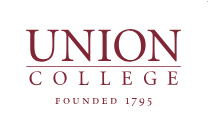DiSorbo, Philip G.
Name
DiSorbo, Philip G.
Year
1967 – 1971
Intro bio
DiSorbo became the first employee of Hospice of Schenectady, which was founded at Union College in 1980.
Full Bio
In many ways, Phil DiSorbo’s career embodies Eliphalet Nott’s advice to “Carry your humanity with you.” A psychology major, who graduated Phi Beta Kappa and summa cum laude in 1971, DiSorbo became the first employee of Hospice of Schenectady, which was founded at Union College in 1980. His work with the New York State legislature and the federal government was instrumental in enabling Hospice of Schenectady to be the first hospice in the United States eligible for funding through Medicare. As Executive Director of an expanded hospice network known as Community Hospice, DiSorbo was eventually responsible for hospice services in eight counties – with 400 employees and more than one thousand trained volunteers. More than 600 patients received palliative care each day. For his ground-breaking efforts with hospice he received the “Heart of Hospice” award from the National Hospice and Palliative Care Organization. This was fitting recognition for one who played such a key role in one of the greatest social inventions of the 20th century.
While at Community Hospice, he instituted cooperative arrangements with a number of hospices in Africa in order to pursue a goal of ameliorating the suffering caused by the world-wide AIDS epidemic. AIDS has had an especially devastating effect on sub-Saharan Africa, claiming over 7,000 lives each day. Over time, this project drew DiSorbo into a broader initiative that would lead to a coordinated and well-funded effort to partner with, and assist, hospices all across sub-Saharan Africa.
After leaving Community Hospice, he co-founded the Foundation for Hospice in Sub-Saharan Africa (FHSSA) in1999 and became that organization’s first Executive Director in 2006. Under his leadership, FHSSA created the Diana Legacy Fund, named in memory of the first high-profile, western figure to go to Africa to assist in the anti-AIDS campaign. Bishop Tutu himself opened the Fund’s $10 million campaign in Los Angeles in the spring of 2007.
Inspired and assisted by DiSorbo, the Union College community, led by Unitas and the Minerva Council, has partnered with FHSSA and the Diana Legacy Fund for a fundraising effort involving an annual campus-wide ball. In 2008 it raised $6,000, and coupled with the receipt of a foundation grant, provided the money required for the purchase of a Toyota Land Cruiser to help transport and deliver medicines and health care workers to those suffering in outlying areas in Tanzania. The “Union College” van enables the hospice to reach 5,500 patients each year, 4,000 more than could be reached without the van. Fundraising efforts for a second van are under way. In addition, two students went to work in a hospice in South Africa and to do research while there, opening the way for possible future service for other Union students.
Truly, Phil DiSorbo’s career has been one that demonstrates the power of “carrying your humanity with you.” And, he has helped make it possible for many of Union’s current students to “carry their humanity” with them by their efforts at fundraising and volunteering in Africa. In 2006 the College awarded him its Eliphalet Nott medal, a most appropriate recognition of Phil DiSorbo’s humanitarian efforts.
While at Community Hospice, he instituted cooperative arrangements with a number of hospices in Africa in order to pursue a goal of ameliorating the suffering caused by the world-wide AIDS epidemic. AIDS has had an especially devastating effect on sub-Saharan Africa, claiming over 7,000 lives each day. Over time, this project drew DiSorbo into a broader initiative that would lead to a coordinated and well-funded effort to partner with, and assist, hospices all across sub-Saharan Africa.
After leaving Community Hospice, he co-founded the Foundation for Hospice in Sub-Saharan Africa (FHSSA) in1999 and became that organization’s first Executive Director in 2006. Under his leadership, FHSSA created the Diana Legacy Fund, named in memory of the first high-profile, western figure to go to Africa to assist in the anti-AIDS campaign. Bishop Tutu himself opened the Fund’s $10 million campaign in Los Angeles in the spring of 2007.
Inspired and assisted by DiSorbo, the Union College community, led by Unitas and the Minerva Council, has partnered with FHSSA and the Diana Legacy Fund for a fundraising effort involving an annual campus-wide ball. In 2008 it raised $6,000, and coupled with the receipt of a foundation grant, provided the money required for the purchase of a Toyota Land Cruiser to help transport and deliver medicines and health care workers to those suffering in outlying areas in Tanzania. The “Union College” van enables the hospice to reach 5,500 patients each year, 4,000 more than could be reached without the van. Fundraising efforts for a second van are under way. In addition, two students went to work in a hospice in South Africa and to do research while there, opening the way for possible future service for other Union students.
Truly, Phil DiSorbo’s career has been one that demonstrates the power of “carrying your humanity with you.” And, he has helped make it possible for many of Union’s current students to “carry their humanity” with them by their efforts at fundraising and volunteering in Africa. In 2006 the College awarded him its Eliphalet Nott medal, a most appropriate recognition of Phil DiSorbo’s humanitarian efforts.

